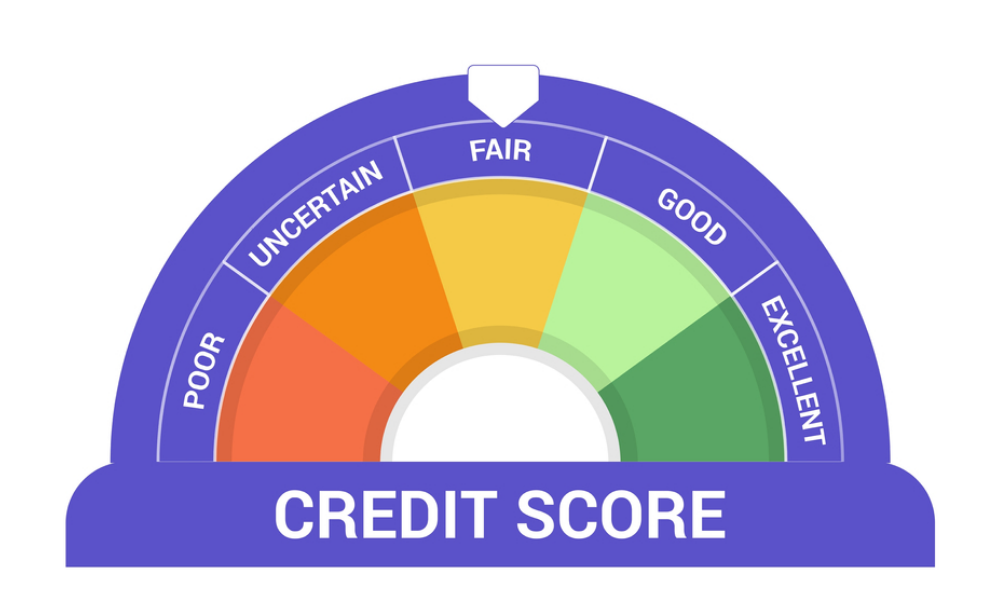What Is The Highest Credit Score One Can Have?
Do you know the highest credit score you can have? As per a FICO study from April 2019, approximately 1.6 percent of the US population had impeccable FICO ratings. Consumers who achieve this level are more likely to qualify for the best rates and conditions on bank cards, mortgages, college loans, auto loans, and personal loans, among other financial products.
Although there are a variety of credit scores, your primary FICO (Fair Isaac Corp.) score is the gold standard that financial organizations use when selecting whether or not to lend money or give credit cards to individuals.
Your FICO score isn’t made up of just one number. The major credit bureaus, TransUnion and Equifax, have assigned you one. Each FICO score is solely based on the information included in that credit bureau’s report.
Here is what you need to know about the highest FICO score and how you might be able to achieve it.
Table of Contents
The Highest Credit Score You Can Get
The highest credit score you can get using the FICO® credit model is 850. Any score above 740 is deemed “excellent” and will earn you the best mortgage, credit card, and car insurance interest rates.
If you want the highest credit score, you must go for an 850. For the most commonly used version of both credit scoring models, this is the highest FICO score and VantageScore accessible.
Perfect credit ratings sometimes seem out of grasp for no apparent reason. The typical FICO score is 704 out of 200 million individuals with credit scores. According to FICO, just 1.6 percent of Americans with credit ratings have excellent FICO scores as of April 2019.
Is Having a Good Credit Score Important?
Your credit score is significant as creditors use this three-digit figure to assess your risk as a borrower. The better your credit score, the more likely you will get approved for a loan and get the best interest rate. The greatest rates and loan conditions are usually reserved for persons with strong credit.
Even though it is not absolutely necessary to have the highest credit score, it still is highly beneficial to have the highest credit score. A good credit score would make it very easy for you to bag a loan, purchase a house, buy a car or get a job.
When calculating your credit score, you’ll notice your history of repaying debts and making monthly payments. If you have an exceptional or highest credit score, the lender assumes you won’t be a problematic risk since you’ll handle new credit the same way you’ve always treated it and pay it back on time.
Some lenders may find you not creditworthy if you have bad credit and doubt your ability to repay a loan on time. Some lenders may be cautious about granting you a line of credit if your credit history reveals that you don’t pay your dues on time. Investors may be more agitated that the pattern will reoccur and that they will lose money.
Factors That Determine Your Credit Score
Various factors are responsible for building up your credit score. Those factors either make or break your credit score. Here are the factors you need to consider for the highest credit score.
- Your Credit History — Your credit history makes up almost 35 percent of your FICO credit score. This is because your credit history gives the lender a detailed insight into your credit, your billing history, your financial habits, and if you’d be able to pay your bills on time.
- Amassed Debt — Having a broad credit history is a good thing. Your credit mix, which contributes to 10% of your overall credit score, comprises your credit history.
You can manage a range of debts simultaneously, provided you have a good mix of recurring debts and loan products. Credit cards are an example of revolving debt, whereas mortgage, vehicle, and student loan installments are examples of loan products. This would give you an edge when creditors view your credit report.
- Credit Utilization — The amount of credit you’re now utilizing divided by the amount borrowed is your credit utilization ratio. Thirty percent of your FICO score is how much you utilize your credit. While it’s generally advised to maintain your credit usage ratio below 30 percent, a ratio near 0% would help you improve your credit score much more.
How Can You Get a Perfect Credit Score
If you’ve got a poor or bad credit score, your chances of getting a mortgage or acquiring a loan are low by default. However, there are certain actions that you can take to increase your credit score and get a higher, near-perfect, or perfect credit score.
– Timely Payments
Your payment history comprises 35% of your credit score. Hence, it would greatly affect your credit score if you do not pay your bills on time. Once your payment is 30 days overdue, your lenders report it to the three major credit bureaus Experian, Equifax, and TransUnion. Eventually, the late payment appears on your credit report. This late payment remains on your credit report for almost seven years affecting your chances of acquiring loans in the future.
– Monitor Your Credit Reports
If you keep track of your credit report, you can immediately dispute an error as soon as it shows up on your credit report.
It might hurt your credit score if a creditor submits false or incomplete negative information to the credit bureaus. Check your credit reports a minimum once a year to detect and fix reporting problems.
You can review your credit reports on AnnualCreditReport.com.
– Keep a Low Credit Utilization Ratio
A low credit utilization ratio is one of the most significant ways to keep your credit score intact. It accounts for 30% of your credit score. Hence, a damaged utilization ratio can hurt your credit score. Keeping a low utilization ratio would help you land better interest rates.
– Don’t Unnecessarily Cancel Cards.
As you can see, individuals with longer payment history and lower credit use percentages are favored by both models. Unfortunately, you won’t be able to establish a credit history of ten years instantly. You may have one or two credit cards active at all times and never cancel them.
Even if you don’t use your credit card daily, you probably won’t want to close it. Using a credit card for a longer period might improve your credit score.
This will not only help you establish a long credit history, but it will also help you maintain a low credit usage rate since having more operational credit cards in your name means having more accessible credit.
Bottom Line
All credit scores lie between 300 and 850, and 850 is the best attainable number. It is possible to achieve a credit score of 850. However, most customers will find it difficult.
You may enhance your credit scores by practicing good credit activities and developing credit according to the criteria given above. Consider it a nice bonus if you hit 850 along the road.
Although achieving the greatest credit score achievable is a worthy objective, don’t get too worked up if you don’t succeed. It takes a long time, and only a small fraction of the population has the highest credit score. Instead, concentrate on establishing healthy credit habits by following the outlined methods. You’ll build a top-ranked credit score over time.






